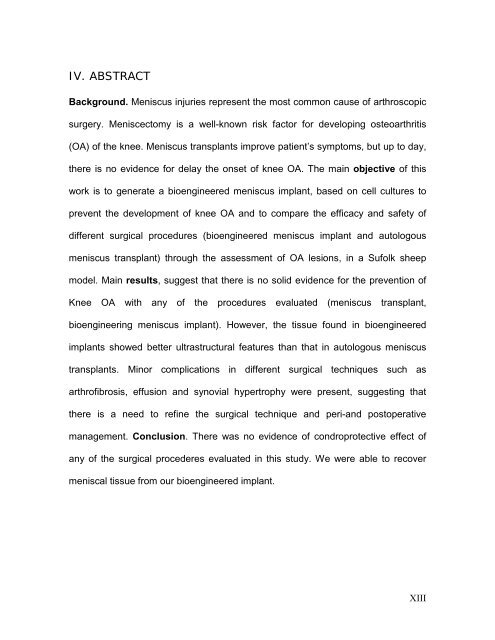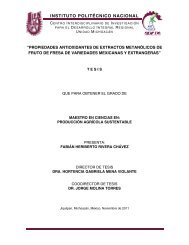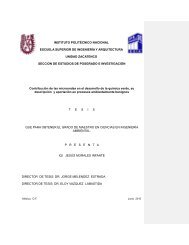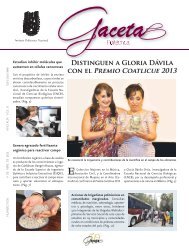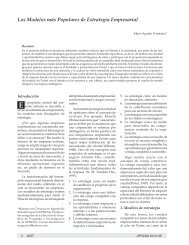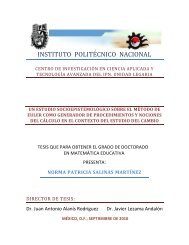Ver/Abrir - Repositorio Digital - Instituto Politécnico Nacional
Ver/Abrir - Repositorio Digital - Instituto Politécnico Nacional
Ver/Abrir - Repositorio Digital - Instituto Politécnico Nacional
You also want an ePaper? Increase the reach of your titles
YUMPU automatically turns print PDFs into web optimized ePapers that Google loves.
IV. ABSTRACT<br />
Background. Meniscus injuries represent the most common cause of arthroscopic<br />
surgery. Meniscectomy is a well-known risk factor for developing osteoarthritis<br />
(OA) of the knee. Meniscus transplants improve patient’s symptoms, but up to day,<br />
there is no evidence for delay the onset of knee OA. The main objective of this<br />
work is to generate a bioengineered meniscus implant, based on cell cultures to<br />
prevent the development of knee OA and to compare the efficacy and safety of<br />
different surgical procedures (bioengineered meniscus implant and autologous<br />
meniscus transplant) through the assessment of OA lesions, in a Sufolk sheep<br />
model. Main results, suggest that there is no solid evidence for the prevention of<br />
Knee OA with any of the procedures evaluated (meniscus transplant,<br />
bioengineering meniscus implant). However, the tissue found in bioengineered<br />
implants showed better ultrastructural features than that in autologous meniscus<br />
transplants. Minor complications in different surgical techniques such as<br />
arthrofibrosis, effusion and synovial hypertrophy were present, suggesting that<br />
there is a need to refine the surgical technique and peri-and postoperative<br />
management. Conclusion. There was no evidence of condroprotective effect of<br />
any of the surgical procederes evaluated in this study. We were able to recover<br />
meniscal tissue from our bioengineered implant.<br />
XIII


